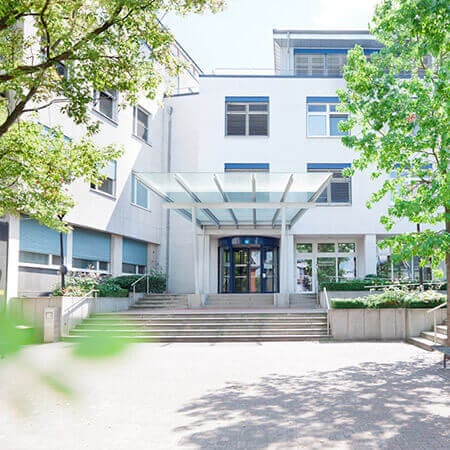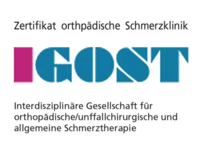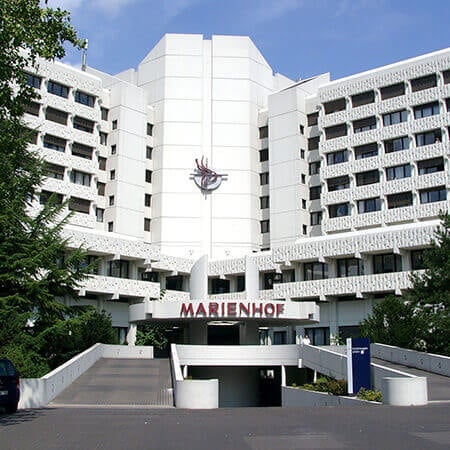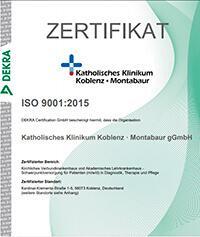Spinal meningioma is a benign and slow growing tumor which develops in the meninges. Meningioma treatment involves a tumor removal surgery. Doctors in German hospitals usually manage to remove the neoplasm completely, which reduces the risk of its recurrence. A high-quality preoperative examination and intraoperative diagnostics can reduce the risk of neurological complications to a minimum. If you want to see the prices and make an appointment for your meningioma treatment in Germany, the Booking Health service will be happy to help.
Content
- Diagnostics
- Principles of treatment
- New technologies to improve treatment results
- Minimally invasive interventions
- Treatment results
- Why is it worth undergoing treatment in Germany?
Diagnostics
Most patients seek medical attention for the first time due to the development of neurological symptoms. Since this type of tumor progresses slowly, the patients often only go to the doctor very late, when the meningioma has already reached a large size. At the time of seeing a doctor:
- 40% of patients cannot walk, and another 20% of patients show unsteadiness when walking;
- 40% of patients experience back pain;
- 33% of patients suffer from severe muscle weakness;
- 25% of patients suffer from sensory disturbances (numbness or unusual sensations).
To make a diagnosis, medical imaging techniques are used. The most informative diagnostic test is an MRI scan. If an MRI is contraindicated or not available for technical reasons, doctors can also use a CT scan. 80% of meningiomas in women affect the thoracic region, whilst in men this localization is observed in 50% of cases. Medical imaging methods help to assess the location of the tumor, the features of its blood supply, and its size. Based on the results obtained, a surgical intervention is planned.
Principles of treatment
The main, and usually the only, treatment option for both brain and spinal cord meningiomas is surgery. The doctors remove the tumor and in most cases it does not recur in the future. If the tumor recurs, the surgical interventions can be repeated or radiation therapy can be conducted to stop the growth of the meningioma.
When starting the treatment for a patient, doctors set themselves the following tasks:
- complete tumor removal, if possible;
- elimination of symptoms;
- prevention of the recurrence of the disease (doctors aim to make sure that it will not recur in the future);
- avoidance of complications that can develop in cases of spinal cord lesions.
The patient is carefully diagnosed. The doctors determine the size of the tumor, its localization, and the interrelation with the healthy tissues. They determine the most functionally significant regions of the brain that should not be damaged during surgery, and plan the safest route to the tumor.
In more than 90% of cases, German surgeons manage to achieve a total (complete) meningioma resection. A total resection during the surgical treatment provides a lower risk of recurrence and a longer relapse-free period compared to a subtotal (incomplete) resection. In the specialized centers, the proportion of total resections reaches 98%.
Whenever possible, the doctors try to cure the patient of meningioma, preserving all the functions of the spinal cord, or at least minimizing neurological complications. Unfortunately, it is not always possible to completely rid a person of complications, since some of them develop for reasons beyond the doctor's control. Here are some of the main risk factors leading to the development of an irreversible neurological deficit:
- tumor calcification (a hardening due to the deposition of calcium salts);
- fusion of the dura mater and the spinal cord;
- infiltrative growth (a growth deep into the tissues of the spinal cord);
- low functional degree at the time of detection of the disease;
- long-lasting symptoms present before making the diagnosis;
- old age.
New technologies to improve treatment results
A doctor's task is not only to cure the patient of meningioma, but also to minimize the risk of complications. A well-performed sparing operation reduces the likelihood of developing a neurological deficit and facilitates and shortens a rehabilitation period.
In the 21st century, intraoperative neuromonitoring began to be widely used in neurosurgery. All major hospitals in Germany have the equipment necessary for conducting it. When performing operations on the spinal cord and brain, the surgeons use the following monitoring methods:
- transcranial motor evoked potential monitoring;
- somatosensory evoked potential monitoring;
- electromyography (EMG) monitoring.
These are functional examinations that can be used both before surgery and during interventions on the spinal cord and brain. They allow the doctor to understand whether a certain part of the nervous system is functionally significant. If it is important to preserve the neurological function, then doctors avoid the lesions at this site, which avoids future complications.
The other methods commonly used to improve surgical outcomes in Germany, are the use of a surgical microscope or an intraoperative ultrasound device. These are used to achieve better tissue imaging, although they do not allow doctors to identify functionally significant areas of the nervous tissue during their surgeries.
A preoperative assessment of the tumor using radiation methods is very important for a successful outcome of the surgical intervention. Radiation diagnostics help in choosing an adequate and safe surgical corridor for the meningioma resection.
Minimally invasive interventions
More recently, minimally invasive techniques for the microsurgical resection of intradural spinal tumors have been developed. They are already used in the Departments of Neurosurgery in Germany.
The doctors remove only a part of the vertebral arch on one side. This creates a sufficient surgical approach for the tumor resection. The specialists do not damage the paraspinal muscles, facet complexes, or posterior tendon bundles. As a result, the following benefits can be achieved:
- a lower risk of complications;
- a less pronounced postoperative discomfort;
- a faster recovery;
- a reduced hospital stay;
- a lower risk of spinal instability.
When using minimally invasive interventions, doctors in Germany achieve the same results in meningioma treatment and the patient's postoperative neurological status, as with standard operations.
Treatment results
Almost always, a neurological improvement occurs after the completion of treatment. The symptoms are relieved even in the first days and weeks after the operation. The subsequent rehabilitation allows the patient to return to his work and active life.
The Departments of Neurosurgery in Germany perform safe surgical interventions. Complications are rare and the mortality rate is very low. The isolated cases of death occur amongst elderly patients, whose organisms were weakened by concomitant diseases. But, even in this category of patients, the risks of spinal cord surgery are minimal.
Approximately 12% of patients have relapses during a 5-year follow-up period. Although the likelihood of the tumor recurrence is low, the disease can recur even after 10 or 15 years. Therefore, patients need a long-term follow-up after surgery.
The first follow-up MRI is performed 2 days after the intervention in order to assess its results. The procedure is then repeated after 3, 6, and then 12 months. The check-up is carried out once a year, and then 3 years after the operation, the intervals between the examinations are increased. The frequency of check-ups depends on the results of the previous MRI.
The results of spinal meningioma treatment are better in those patients whose tumors were completely removed. In these cases, only one out of three operated on patients has a meningioma recurrence within the 15-year follow-up period. If a partial tumor removal is performed, then the risk of recurrence reaches 78% over the same period. German doctors usually remove the meningioma completely, which reduces the risk of recurrence to a minimum.
Why is it worth undergoing treatment in Germany?
If you live in a country with poorly developed medicine, then it is better to opt for your treatment of brain and spinal cord tumors to be in Germany. Perhaps the prices here are higher than in your native country, but if you use the services of German neurosurgeons, you can count on a complete cure of the disease and maintaining a high quality of life after surgery. The Booking Health company will select the most suitable hospital for you, taking into account the specialization, the level of the doctors' skills, the availability of innovations, the cost of treatment in Germany, and other factors. Due to the absence of additional coefficients for foreign patients, the prices for you will be lower than if you contact the hospital directly.
Here are a few reasons for you to undergo your treatment in Germany:
- the experienced doctors who perform hundreds of operations on the brain and spinal cord each year;
- the Department of Neurosurgery with its state-of-the-art technology;
- comprehensive diagnostics prior to surgery and neuromonitoring during surgery to reduce the risk of neurological complications;
- doctors usually manage to remove the tumor completely, which reduces the risk of recurrence to a minimum;
- in patients who have a minimally invasive meningioma removal surgery, the surgeon will remove a part of the vertebral arch on one side, achieving the maximum preservation of spinal tissues;
- full rehabilitation after surgery will help you to recover faster and return to your normal life.
Please leave your request on the Booking Health website to get assistance in choosing the most suitable hospital and organizing your trip. If you make an appointment for your treatment through our website, the cost of treatment in Germany will not increase. If difficulties arise during your treatment process and you require additional procedures, your insurance will cover the costs, so the final price of the medical care program will not change for you.
Authors:
The article was edited by medical experts, board certified doctors Dr. Nadezhda Ivanisova and Dr. Sergey Pashchenko. For the treatment of the conditions referred to in the article, you must consult a doctor; the information in the article is not intended for self-medication!
Sources:
National Library of Medicine
MedlinePlus
SPINE-health








